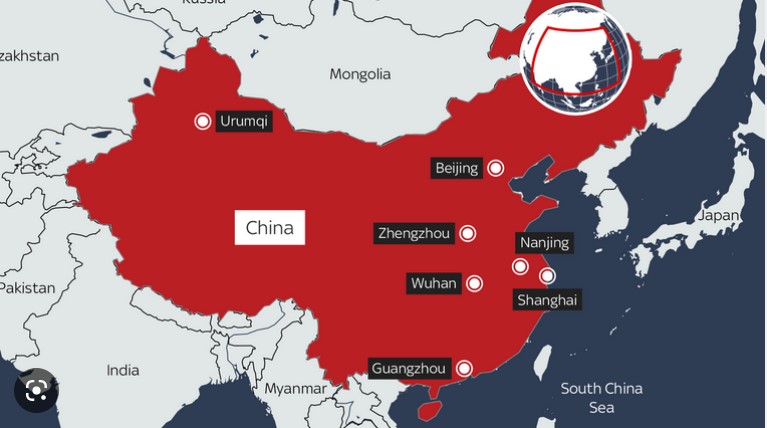Virendra Pandit
New Delhi: Worried over the security forces’ apparent reluctance to crush the widespread protests across the country—the Sri Lankan police officers joined protesters six months ago!—China is attempting to douse the countrywide protests against mounting multiple crises by adopting a combination of soft measures like subtly censoring social media and quietly easing the stringent Zero Covid curbs.
China enforced a strict Zero Covid policy as an alibi to keep protesters in check, as they would otherwise have rebelled against rising unemployment, economic recession, and the food and fuel crisis staring at the world’s second-largest economy. To keep domestic unrest at bay, Beijing has also been periodically raising patriotic feelings about Taiwan’s unification’ issue.
A lot has changed in the last four decades. China has grown from a developing country to become the world’s manufacturing hub. Its export-centric economy raised living standards at home—and so did the Chinese’ democratic aspirations, reflected in their recent slogans against the ruling Communist party and their demands for democracy and President Xi Jinping’s resignation.
Unlike in 1989, when China killed thousands and brutally crushed the Tiananmen Square uprising, Beijing is treading cautiously, lest the relatively peaceful protests turn violent in an era of social media. The Communist regime, which claims to be ‘democratic’ and ‘people’s representative’, does not want to be seen as weaker and surrendering to the protesters’ demands.
The Chinese authorities are carefully responding to protests against stringent Covid curbs with a heavy police presence, censorship on social media, and some quiet concessions even as the country’s Covid-19 outbreak continues to flare.
The death of at least 10 people in a deadly fire in a high-rise building of Urumqi in the already restive, Muslim-dominated Xinjiang Province triggered the unrest, which engulfed many cities and even universities, last weekend. It spread further on Monday, forcing Beijing to deploy a heavy police force to clamp down on protests.
Besides Beijing, major cities, including Shanghai, Hangzhou, and Nanjing, also saw demonstrations, while censorship of protest-related discussions ramped up across social media platforms that had been used to vent public anger.
Sensing more trouble ahead, the officials decided to quietly provide some concessions. These include exempting the home-staying people from frequent Covid tests, the state-controlled news agency Xinhua said on Tuesday.
The elderly and students taking online classes were also exempted from daily tests in Guangzhou. Movement restrictions imposed in Beijing to trace the source of Covid or identify those infected will not exceed 24 hours, officials said.
The Hang Seng China Enterprises Index erased Monday’s drop, led by property developers after the government eased some financing restrictions for the industry. Stocks associated with economic reopening also climbed as some investors speculated the protests may hasten a shift away from Covid Zero policies.
China’s National Health Commission reported 37,477 infections on Monday. Chongqing, China’s most populous city, recorded 8,721 cases, while Beijing hit a record 4,370 new local infections.
Meanwhile, the US embassy in Beijing on Monday urged Americans in China to store two weeks’ worth of medications, water, and food on hand because of expanded Covid prevention and control measures.
While the concessions to strict Zero Covid policies are minor, changes over the past few days have given hope to market watchers that the situation might ease, the media reported.
The city of Chengdu halted construction of a quarantine facility that aimed to accommodate tens of thousands of people, according to local media reports, raising speculation about a potential retreat from mass quarantine policies.
Many housing compounds in Beijing lifted lockdowns after residents confronted local staff about excessive restrictions.

